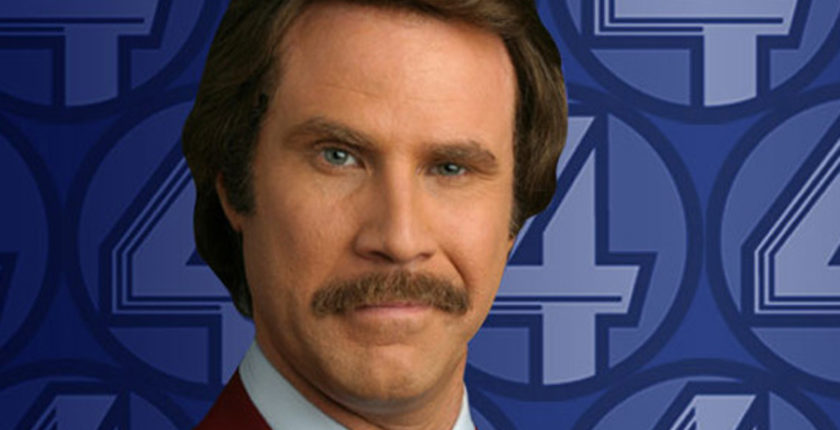Before I get myself into trouble as I casually foray into the potentially sensitive subject of diversity with very little expertise, I would like to put out a disclaimer on this article! I am not trying to criticise or promote one perspective over another. My intention is simply to provoke some thought and encourage reflection by raising questions and highlighting differing perspectives in response to quite an emotive subject.
For those who don’t know me, I’m a HR search professional of many years who is regularly in conversation with HR leaders. As you’d expect I am often posed questions about market conditions and trends. Over the last 6 months though, I’ve been struck by a question that’s been raised with increasing regularity by some male HR Directors with whom I’m having career conversations.
The question……
“Do you think the fact that I’m a man is working against me in the market currently?”
I’ll admit to being slightly surprised to receive this question, perhaps this is somewhat naïve on my part. As such, my earlier responses to this question have been to suggest that I’ve not personally observed any noticeable changes of this nature when instructed on new searches. However, with the regularity that this question is surfacing, and in fact from anecdotal tales of male HRD’s being openly told their gender has been a contributing factor in why they didn’t get a job, it does seem this is perhaps ‘a thing’ in the executive labour market. It’s worth noting too though, that on none of these occasions have the individuals in question bemoaned this, quite the opposite in fact, but they were nonetheless interested to see if this was being felt more widely.
Partly why this was a little surprising was it featuring within HR itself. Appreciating there is an understandable and widespread desire to move to a better gender balance at leadership level, HR has in fact tended to be better balanced than many other functions. That said, even though I don’t have the stats, my sense of the HR world is that relative to the overall population of the profession, there is probably a disproportionate ratio of males to females at leadership level – the former being noticeably low in numbers at junior and mid-level, but then punching above their weight of numbers at leadership level. Perhaps this is one reason therefore, why HR is a quick win target area to appoint more female leaders, as compared to other professions there is a healthier pipeline of high calibre talent already in place to access.
When asked this question the first few times, my initial instinct was to put this down to the potential need to discriminate positively in order to re-balance representation in the labour market, particularly at leadership and future leadership levels. Looking for some additional insight on this subject though, I took well-trodden path to my personal enlightenment and raised this in discussion with the most venerable, learned of HR Directors, the all-knowing, all-seeing, the font of wisdom, the oracle of sensible thought, that’s right, Mrs Godber! It wasn’t long before I heard a perspective that I, in my classic (dare I say simplistic!) male thinking to this subject, hadn’t really considered as much as I should have. Perhaps this phenomenon wasn’t simply to be attributed to positive discrimination to change the numbers, but a more general change to the skills and behaviours more prominently being sought by operating boards. Board leaders are after all changing themselves at a generational level, as are their workforces, bringing different priorities for leadership teams to tackle when looking to run their businesses more effectively.
At the risk of entering stereo-typical landscapes, perhaps there is a shift in the behavioural traits in demand which are often reflected as gender specific. For example, is it possible qualities around decision-making lean more in favour of those with a reflective, listening, collaborative style, and away from those who are better at asserting a position of self-confidence (or bravado!) that they personally have, or will come up with, the answers to solve the questions at hand. Is an empathetic disposition more aligned to dial into questions of culture and productivity, over the ability to prescribe and give instruction? Are businesses now looking more deeply for evidence of the supportive behaviour that brings collectively positive outcomes within teams, over the personal resolve, single mindedness and ambition that can bring individual achievement and accolade?
Of course each situation will be different, but it did make me think that the next time I’m asked that question, I think I will pose a question back in future. As a male leader, do you think you are noticing changes in the qualities employers are now actively pursuing, and is there anything you can, or should be doing to make yourself more viable and attractive to employers?
It may be a simple case of positive discrimination about which little can be done, but equally it may not, and so constructively questioning whether there is anything you can change, or adapt that may further enhance your proposition as the hire of choice could be a positive step. After all, some will say, it’s about time men had to change their game, as women have been confronted with these challenges for a long time already! Having to operate in a ‘man’s world’ has been heard all too often, so much better to be shifting to a place where the need to adapt isn’t one way traffic.
Hopefully this debate will also keep moving on to all the other under-represented groups out there as well……a long way to go! Now I’m off to get back into my hard-done-by male, middle aged, middle class, white privilege box – thanks for reading!
If this article resonates, or you think it would be of interest to others, please don’t be shy to comment, but ‘shares’ are gratefully appreciated, and ‘likes’ are well received!




